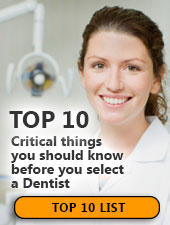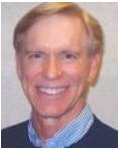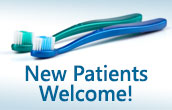Dry Mouth And The Denture Patient - Xerostomia
Xerostomia (Dry Mouth) and Wearing Dentures
To a great extent, dentures stay in place comfortably and in a stabilized manner by development of an intimate interface between denture surfaces and the soft tissues they rest upon. Presence of adequate amounts of saliva within this denture/tissue interface is essential. Without enough saliva, a denture will inadequately adhere to tissues, partly through loss of suction. In addition, tissues contacting a denture will become chafed and irritated without the lubricating effects of saliva.
Some Common Causes of Dry Mouth
- Medications: There are approximately 500 commonly prescribed medications that have xerostomia as a possible side effect, and this is a frequent cause of dryness.
- Aging: The amount of saliva produced by salivary glands lessens as a person ages.
li>Illnesses: Xerostomia is sometimes associated with certain illnesses or conditions such as chronic diarrhea, liver dysfunction, or Sjogren's syndrome.- Radiation therapy: Radiotherapy that is used to treat some cancers may have reduced salivary gland function as a side effect.
- Habits: Chronic mouth breathing and inadequate fluid consumption often will cause dry mouth.
Approaches to Managing Dry Mouth
Before managing a persistent dry mouth, it is essential to first become aware of the problem, and then attempt to determine causation for the xerostomia. Sometimes the cause is easily eliminated, but in many instances, that is not possible, and the condition is persistent and often progressive. There are several approaches to managing dry mouth.
- Modify medications: If a certain medication is suspected of causing xerostomia, consultation with a person's physician may make it possible to use a different, but equally effective, drug that no longer causes dry mouth or causes it to a lesser degree. However, there often are not suitable alternatives for a particular person's individual problem. Under no circumstances should someone discontinue or attempt to change a medication without the explicit knowledge and approval of their physician -- to do otherwise may result in serious illness or death.
- Sialagogues: These are substances that stimulate the production of saliva. There are two important types of sialagogues. 1) Gustatory sialagogues such as sugar-free hard candies frequently will cause some increase in salivation, and citrus flavors such as lemon are sometimes more effective than others. While sugar-free, low-sticking gum has been suggested, the process of chewing gum could more easily irritate already poorly lubricated tissues by increasing denture movement. 2) Pharmaceutical sialagogues (called parasympathomimetic agents) sometimes improve salivation and must be prescribed by a person's physician if their health status allows such a consideration.
- Salivary substitutes: Salivary substitutes are commercially available solutions that help keep the mouth moist and more lubricated. These compounds usually must be applied frequently and they generally necessitate having a container of the substance nearby.
li>Water: Water is a salivary substitute and often is used in place of commercial salivary substitutes. Regularly moistening the mouth, and drinking increased amounts of water may both hydrate tissues and facilitate some increase in production of saliva in certain individuals. While increased intake of water is generally healthful, persons with certain medical conditions such as, but not limited to, congestive heart failure should first check with their physicians before significantly increasing their routine consumption of fluids.Alternative Denture Therapy for Patients Suffering From Dry Mouth
Those patients who are not able to comfortably wear conventional dentures due to severe xerostomia might consider implant-supported dentures. If this course of treatment is pursued, intense oral hygiene practices are necessary to maintain healthy implants and avoid periodontal disease in the presence of reduced salivary production. A person should always consult with their dentist to determine which treatment is best for them.
by Joseph J. Massad, D.D.S.
«« Back to Dental Information Center
To acquaint you with our office, we're offering all new patients $25.00 off their first: Complete Oral Exam, X-rays and Routine Cleaning. Take advantage of this opportunity to safeguard your smile.
Visit Our Office Regularly!
Take good care of your smile. Remember to visit the dentist regularly for professional cleanings and oral exams.
Mouthwash Is Important, Too!
Brushing and flossing may not be enough. The ADA now recommends using an antimicrobial mouthwash to reduce plaque and prevent gingivitis.





